Plenty of Australian parliamentarians have made more incendiary statements against Covid vaccination than the tennis star ever did. Who might this arbitrary censorship power fall on next?
Read more

Plenty of Australian parliamentarians have made more incendiary statements against Covid vaccination than the tennis star ever did. Who might this arbitrary censorship power fall on next?
Read more
To bring about the far-reaching behavioural changes necessary for the transition to a zero carbon economy, will governments be able to rely on the go-to tools of public policy – rational choice theory and behavioural economics, with its so-called ‘nudge’ techniques?
Read more
Does the Covid-19 vaccine response foreshadow how well the market-based capitalist system will address global warming? If so, and unless governments determine that saving the planet and avoiding a dangerous future for coming generations is at least as important as corporate profits and shareholder dividends, there is little chance of success in the time available.
Read more
Vaccine nationalism is small-minded, self-centered, and ultimately self-defeating, because COVID-19 will not cease to be a problem until no one has it. This is the moment to think big, the moment for generosity and big ideas. When a majority of American adults will have had their first dose of a vaccine, what if the US then begins to pivot from mass-vaccinating its own citizens to mass-vaccinating the rest of the world?
Read more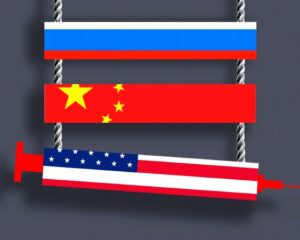
Author: Yasmeen Serhan | Published 30 March 2021 | The Atlantic The view is frequently expressed that Russia and China are engaging in ‘vaccine diplomacy’ and a ‘vaccine war of influence’; that their capacity to supply Covid-19 vaccines is “being leveraged as a form of soft power to bolster the countries’ global standing”. In this article Yasmeen Serhan suggests that while “U.S. and European leaders might not like it, they are effectively complaining about a
Read more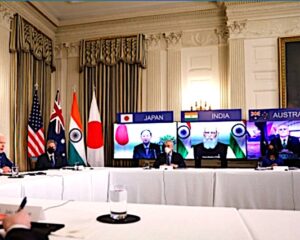
Leaders of the United States, Japan, India and Australia have launched “a landmark partnership to further accelerate the end of the COVID-19 pandemic” in a move widely interpreted as an effort to counter China’s influence in the Asia-Pacific region.
Read more
The World Health Organisation has today called for urgent action to ramp up the supply of Covid-19 vaccines, echoing the growing concern of many commentators observing the divergence between what developed countries are doing, and what we know must be done, to avoid prolonging the pandemic and increasing the cost to the global economy. In the article below, in the context of Italy’s decision this week to refuse an export licence for vaccines destined for
Read more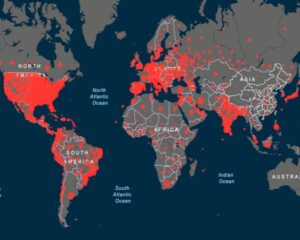
COVID-19 has drawn a clear line between Asia and the rest of the world. What’s particularly striking about this latest divergence is the lack of significance in types of governance. The countries that have been successful in Asia have very different forms of government, as well as different histories, religious backgrounds, and relationships with the countries of the West. How can this be explained?
Read more
Contemplating a world after COVID, some are calling for a reset of existing models of policymaking. In this essay the authors outline shortcomings in existing neoliberal economic models, and argue that the radical pragmatism of effective crisis response—a willingness to try whatever works, guided by an experimental mindset and commitment to empiricism and measuring results —represents a policymaking model that can and should be applied more widely, not only in times of crisis.
Read more
Future pandemics will emerge more often, spread more rapidly, do more damage to the world economy and kill more people than COVID-19 unless there is a transformative change in the global approach to dealing with infectious diseases, warns a major new report on biodiversity and pandemics by 22 leading experts from around the world.
Read more
Serious calls for reform at the World Bank and the IMF first emerged 50 years ago. After 50 years, the absence of change in either policy or intellectual paradigm has been paralleled by the glaring lack of reform in the governing structures of the Bretton Woods twins. Perhaps this is the time for developing country governments to begin exploring an exit strategy? The IMF and the Bank would like the global South to believe that they are indispensable. They are not.
Read more
In a 14 minute program from France24’s The Interview, Professor Harari talks about coronavirus and other crises confronting humankind, including the need for multilateral action on climate change and re-establishing trust in science.
Read more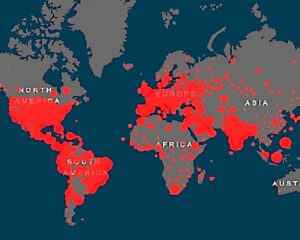
The coronavirus pandemic has thrown a harsh spotlight on the state of global governance. Faced with the greatest emergency since the Second World War, nations have regressed into narrow self-interest. The concept of a rules-based international order has been stripped of meaning, while liberalism faces its greatest crisis in decades. In this Lowy Institute publication, the French Institute for International Relations (IFRI)’s Bobo Lo argues that it’s time to rethink global governance and its priorities.
Read more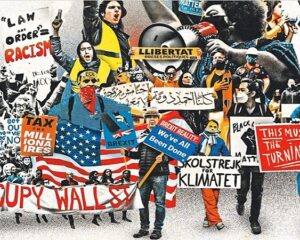
“The coronavirus pandemic won’t automatically lead to reforms. Great upheavals only bring systemic change when reformers have a plan—and the power to implement it”. In this essay, Sheri Berman analyses historical crises and suggests why they may produce or fail to produce transformational change. The essay has a US focus and deals with the potential for systemic change to follow the coronavirus pandemic crisis, but the analysis could also help in understanding why the global warming crisis is failing to produce transformative change on the scale that is needed.
Read more
There is a growing possibility that the COVID-19 crisis will mark the end of the growth model born four decades ago with the Reagan-Thatcher revolution, China’s embrace of capitalism, and the demise of the Soviet Union. The small government, free-market template suddenly looks terribly outdated. Instead of regarding growth as the ultimate solution to inequality, advanced economies will need to tackle distributional issues head on. It is to be hoped that they will be spared the convulsions that often accompany structural and policy changes of such magnitude.
Read more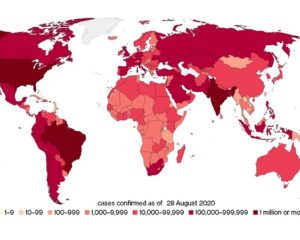
The COVID-19 crisis will not produce a dramatic and enduring increase in global governance or significantly higher levels of international cooperation. Instead it is likely to reinforce divisive trends; to accelerate a retreat from globalization, raise new barriers to international trade, investment, and travel, and give both democratic and non-democratic governments greater power over their citizens’ lives. The post-COVID-19 world will be less open, less free, less prosperous, and more competitive than the world many people expected to emerge only a few years ago.
Read more
That the pandemic will have an impact on defence ministries is beyond doubt. One way or another, national governments and defence ministries will have to grapple with the immediate and extended effects of the pandemic on their countries’ military spending and resource allocation.
Read more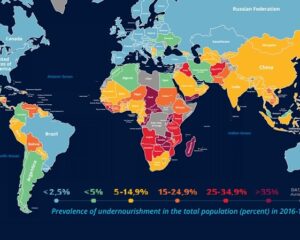
By the end of 2020, the COVID-19 pandemic risks doubling the number of people who face acute hunger from around 135 million to around 265 million people. The pandemic may have a more severe impact on the number of hungry than the global food crisis of 2007–2008, potentially constituting a ‘hunger pandemic’.
Read more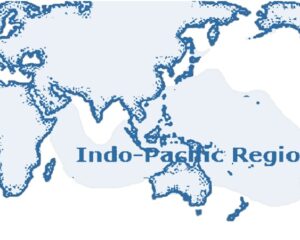
This article is one of a number of pieces circulating that usefully starts to ponder the effect COVID-19 will have on strategic relations in the Indo-Pacific. It presents one of the more comprehensive lists of possible effects. The narrow focus of the article, however, means two major results of the pandemic, a change in the relativities in economic power and a possible change in the US Administration, are not clearly factored into the analysis. With regard to the question of impact of Covid-19 on military readiness, there may be room for greater caution; it is yet to be seen if the worst predictions about a shift in the military balance because of readiness issues will eventuate.
Read more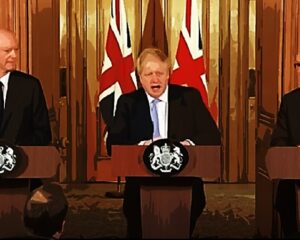
Confronting the dramatic trends taking place in the rates of global warming, destruction of the environment, extinction of biodiversity, and global social injustice urgently requires unprecedented societal and economic transformations. Can major democratic economies overcome the combination of disillusionment with government and distrust of experts, and position themselves to bring about the transformations these crises demand?
Read more